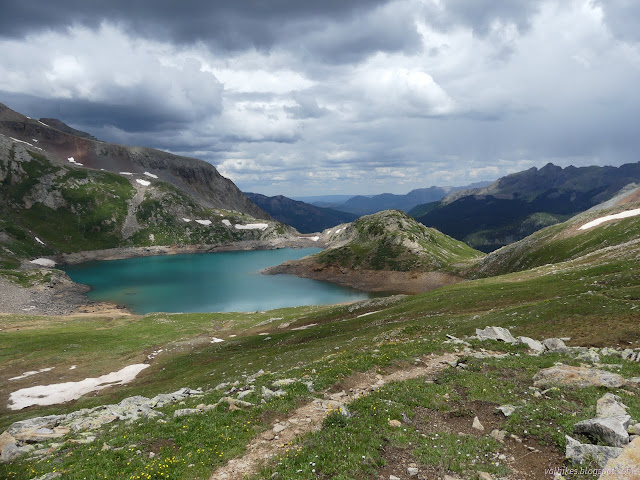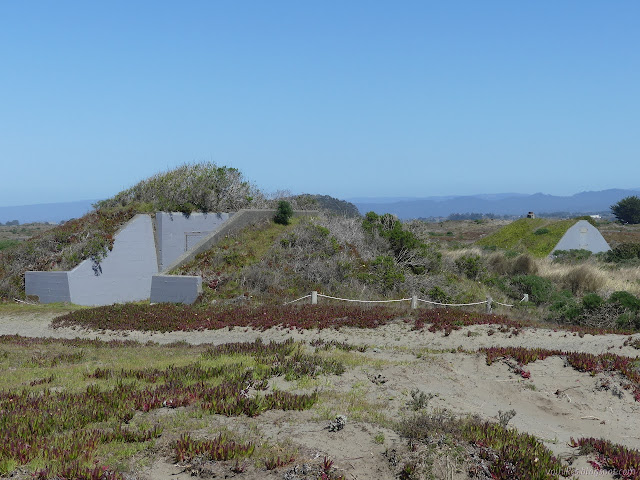Rivas Canyon
Santa Monica Mountains National Recreation Area
Map link.
I would be in a stone's throw of a bit of trail I had located, but found no information online about. I would have sufficient time to investigate it, so I headed out to Rivas Canyon Park. This is a tiny bit of land sandwiched between Temescal Gateway Park and Will Rogers State Historic Park. People seem to consider this park simply as a holder for a trail to travel between the other two, but I had found a very distinct looping route around the ridge edges that define the watershed that is Rivas Canyon. In fixating on finding the road and making the left into it safely, I managed to miss that it is private. That and that there is virtually no parking at the end force me to recommend against starting in the same spot. Temescal offers a much superior starting point with plenty of parking, including free space along the roads near the entrance, and bathrooms at the start. Will Rogers is also an excellent starting point.

The canyon is lush and green, but has no water flowing down it. The edge of the trail becomes a wall as it comes near some houses served by roads above. The houses retreat up the hillside quickly and the trail enters a eucalyptus stand, then the hiker is back to being surrounded by lush green. The only thing of man's handiwork that is seen are the tall wooden flood barriers that occasionally cross the canyon until the trail makes a turn to start climbing the side of it.


Where the trail started climbing was also where I expected to see trail coming down from the right side ridge. Sure enough, a bit of trail continued past the turn and signs had been placed to encourage people to continue along the built trail. I turned up the smaller trail instead. The trail quickly split again, one piece to the left staying on the side of the creek vanished quickly into the undergrowth. I took the right, crossing the creek and starting to climb up to the ridge. There are a few sharp footprints on the tread showing it is in use. The trimmed use trail makes a little effort at switchbacks as it climbs the steep hillside. A few large branches stretch across at thigh and chest height as early obstacles, but overall it is quite clear. Misty city starts to peek out over the canyon walls as I climb.


Reaching a prominence, the trail had undoubtedly found its way up to the ridge line. To the east, the southernmost part of the Backbone trail climbs along its own ridge line. Far below, I spotted a few hikers making their way up another slope. On the far side of the peak, my route dropped most of the elevation it had gained from the bottom of the canyon to meet with their route.




After the second long uphill climb, the trail settled down. It still followed the top edge of the ridge and the slopes can be quite steep, but they do not last very long making the overall walk quite easy. The hikers I had spotted passed me as they came down again. Soon I found myself on unmarked trail. Looking ahead to the left, I could pick out the lip of ridge that divides the drainage I was circling from the others and which my route would take to meet the ridge on the far side.


Just about to the ridge finished, I figured out who was keeping this route open: geocachers. I found a small metal box beside a perfect sitting stone. Within the box was a notebook placed in May 2009. It tells a story of increasing visitation, but the last signers were three weeks ago. A few were folks like me who were just poking through the satellite imagery.

As I continued past the geocache, the trail did loop around as expected. A small trail headed down to the north side, then my trail teed off into a much more used trail full of footprints. I turned to follow it back to the park trails and followed it past some of the largest blue dicks I've come across. As I hit the highest point of the hike, I came upon a second geocache in the form of a wide mouthed plastic jug. It contained many trinkets and a paper explaining geocaching, but no notebook.


From that peak, the trail drops along a long and steep route. A monument is marked on the map along that route, but I didn't notice it while hiking. Being better used does not seem to make this trail an easier hike. It is highly eroded and I find myself having to down climb twice as I go.



The trek down was pretty quick. Some spots seem particularly suited for catching the moisture from the morning fog and are lush. The trail drops to touch these on its left side, then climbs back into arid surroundings as it goes.


As I got lower again, the air was finally clearing a little and the city was clearer. I encountered a couple of joggers with a dog as I got to a junction that looked like it probably went down to Temescal Canyon. As I continued, there were a few other junctions. I thought I had come to the main trail and turned down it when I hit one more junction, this one with a sign of sorts. I again turned and followed the switch backs back down to where I had first left the trail.

From the junction, it is a quick job to retrace my steps back down the canyon and to the car. I saw a few more hikers on the downhill and canyon portions of the trail.


*photo album*
©2013 Valerie Norton
Posted 7 Apr 2013
Liked this? Interesting? Click the three bars at the top left for the menu to read more or subscribe!




Comments